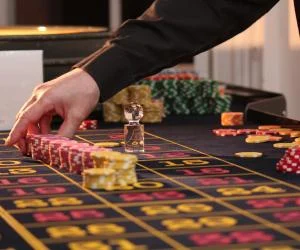For the first time in 23 years, the Nevada Gaming Control Board (NGCB) is opening up discussions about revamping its rules governing private gaming salons for high rollers. The board heard from industry representatives about potential changes in a workshop yesterday (12 December).
Private salons were legalised by state regulators in 2001, but there has been little discussion about them since. In efforts to help Nevada stay competitive as a premier gaming desination, the topic is being reintroduced.
Thursday’s workshop was just the beginning of the revision process. No new regulations or amendments have been drafted, and any that are would still have to go before the board and the Nevada Gaming Commission next year or beyond.
The current regulatory framework for private salons is rather restrictive. Regardless of the operator or location, patrons who wish to play at a licenced salon must have either a $300,000 (£237,708/€285,645) up-front deposit, a credit line of the same amount, or a combination that meets that threshold. Any slot machines in salons must have a minimum bet of $500 per spin, and if a salon patron leaves the area, any guests with them may only play for six hours at a time while the main patron is away.
Multiple industry representatives went before the board to suggest changes to these requirements.
Whittemore: salons ‘very important’
The first to address the board was Ellen Whittemore, executive vice president of Wynn Resorts. She called salons “a very important part” of making Nevada a world-class gaming destination. As such, Wynn is suggesting four changes to salon guidelines:
- Salons should be able to convert from private to public gaming provided there is adequate signage;
- Poker should be allowed in salons when they are private;
- The credit minimum and play time limits when the main patron is away should be reconsidered; and
- Slot-bet minimums should be set at the discretion of the operator.
A good amount of discussion was had regarding the addition of poker. Whittemore noted that poker is defined as a “card game” rather than a table game. But she contended that “there is nothing in the statute or regulations that prohibits card games in private salons.” She said that most of the highest-stakes poker games in the country are held at private residences. If poker is allowed in salons, more high rollers could be lured to Nevada, thereby increasing gaming and tax revenue.
These sentiments were echoed by Charlie Stone, Wynn’s executive vice president of casino operations and marketing.
“The idea of being in a private gaming salon is very attractive for (high rollers),” he said. “I believe we can drive many more of these types of games to Las Vegas, and hosting them in the private gaming salon will provide a much better experience for the customers.”
Board member Brittnie Watkins noted that reclassifying poker as a table game would be a big lift. Instead, “the path of least resistance” would be to just allow it in salons.
Financial requirements outdated, clunky
Whittemore did suggest that the financial requirements are “a little high,” but not for Wynn and its patrons. MGM Resorts, on the other hand, wishes to do away with them completely. The company’s vice president and legal counsel Chandler Pohl asked that operators be granted the discretion to set their own requirements.
MGM is also requesting that poker be granted, and for the ability to offer slots by themselves without tables, which is not currently allowed. Pohl did not take issue with the current slot-bet minimum, however. Overall, Pohl stressed the need to be able to offer high-value or celebrity clients the ability to game privately without the extensive financial burden.
“This is going back to, how do we best cater to these customers, and how do we give them the privacy and security that we as a licensee would like to provide them and what we think is necessary to not cause public scenes on our gaming floors?” he asked.
Lupo, Valentine stress need for Nevada to innovate
The final two guests to speak were Joe Lupo, president of the soon-to-be Hard Rock Las Vegas, and Virginia Valentine, president and CEO of the Nevada Resort Association, which represents about 75 properties throughout the state.
Lupo stressed the importance of keeping Nevada competitive in the gaming landscape. He praised the suggestions put forth and compared his experience in Nevada to that of previous stops in Florida and Atlantic City and asserted that this discussion “is a service question” more than anything.
Valentine reminded the board that these changes impact licensees statewide, not just Las Vegas. She referenced the northern markets specifically in saying that the current financial requirements are “limiting.”
“The idea of a salon gamer is not the same in every market in every season and maybe even depending on what kind of events are happening in town,” she said. “This is the kind of innovative change that can keep us on the cutting edge.”



